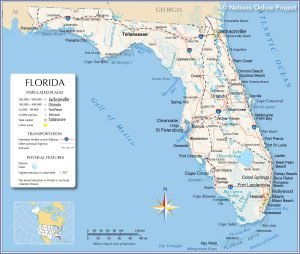If Healthcare is a ‘Right,’ What’s Next?
The following is an op-ed by Peter Rosenberger. Peter Rosenberger is the host of HOPE FOR THE CAREGIVER, a syndicated radio program heard weekly on 200 stations. For more than thirty years, he’s cared for his wife, Gracie, who lives with severe disabilities. Twitter:@hope4caregiver www.hopeforthecaregiver.com

Syndicated Radio Host Peter Rosenberger
“Few laying on a gurney heading to surgery want “lowest bidder government operatives”
One cannot help but admire those who persevere through medical school. For most, the journey begins as teenagers and weighs heavily on young minds as they slog through a difficult educational journey. Through uncounted classrooms and labs to often working multiple jobs eking out a living, these individuals push themselves in truly amazing ways. Enduring grueling hours in residency and fellowships, they press on towards the fixed goal of putting out their shingle in private practice, landing a job at a top university, working for research companies, or other related fields.
This herculean effort stems from core values of wanting to heal, make a better life for themselves, and achieve deep-seated goals. Why else put themselves through such an arduous ordeal?
Add to that, nurses, nurse practitioners, nurse anesthetists, lab technicians, phlebotomists, radiology technicians, and others in the virtual army of medical support. They all sacrifice and work extremely hard to learn their individual skill sets in the healing arts.
Yet, political figures lead the charge in now saying the work these individuals perform is a right, akin to a birthright or a constitutional right. According to many politicians, fellow citizens (and even non-citizens) are entitled to the efforts of others. The acquired knowledge of achievers is now at the disposal of political figures.
If healthcare is a right, then the dedication, education, and sweat equity must be compensated fairly. Yet, politicians seem to now not only determine society is entitled to the products and services of others, but those same politicians grant themselves permission to determine the rate of compensation.
If politicians alone decide what is fair compensation, then what is the impetus for success? Reward is what inspires dedication and effort. Mediocrity doesn’t stand on a podium with a medal. When a healthcare crisis hits, who looks for a mediocre healthcare provider?
Dictating remuneration for the skills of others invalidates the free market for those skills. This leads to the inevitable consequence of stunting the excellence participants require for those skills. When not paid commensurately for effort and ability, even the lowest on the wage spectrum concludes that “phoning” it in makes it easier.
In a free market, excellence is rewarded. In authoritarian constructs, excellence grows scarce. Few laying on a gurney heading to surgery want “lowest bidder government operatives.”
Declaring healthcare a “right” allows politicians to grasp control of someone else’s hard work and abilities, and mete it out at their discretion. In classrooms across America, teenagers seeking to make a name for themselves as surgeons, for example, routinely hear that the field of their aspiration is a right to their fellow citizens. Even with politicians declaring free funding for education, the path remains brutal. Learning the end of that path means working under an externally determined threshold of success is hardly an inspiration to academic distinction—or a motivator to even enter the field.
Competing for no recognition, reward, or the ability to self-negotiate a return on investment leads to empty stadiums. Likewise, it will lead to empty surgical suites.
The logic of “healthcare is a right” seems to naturally extend to politicians allotting farmers’ produce and ranchers’ beef. After all, everyone must eat.
While legislators push bills allowing others the “right to die,” it seems the “right” to crematorium or funeral services can’t be far behind. After all, the mortality rate still hovers at one-hundred percent. Yet other than special individuals like Elvis, the government prohibits “backyard burials.” Instead, families must seek the expensive help of licensed and trained funeral workers. Those service providers also sacrificed and worked hard to learn their skills.
Plumbing, electrical repair, fresh water—if allowed, services and products that politicians might deem as rights can comprise a lengthy list. When elected officials placate the desires of constituents at the expense of others’ hard work, training, and skills, a society careens from freedom to totalitarianism.
Access to medical services for the indigent is a noble thing. Medicaid, while not perfect, serves a great need. However flawed and rife with fraud, Medicare remains embedded in our society. As a society, we can certainly vote and work to improve Medicare and to help the truly needy through a more effective Medicaid program. Furthermore, many ways remain available to assist those with the important skills needed to better treat the sick and injured.
Classifying hard-earned skill sets, products, and services —their property—as a right to be dispensed by politicians to their constituents is far different than working together to solve a problem or address a need. Determining society is entitled to the labor and expertise of some shows great disrespect to their extraordinary achievement.
The nomenclature of “right” is far better suited to the constitution.








